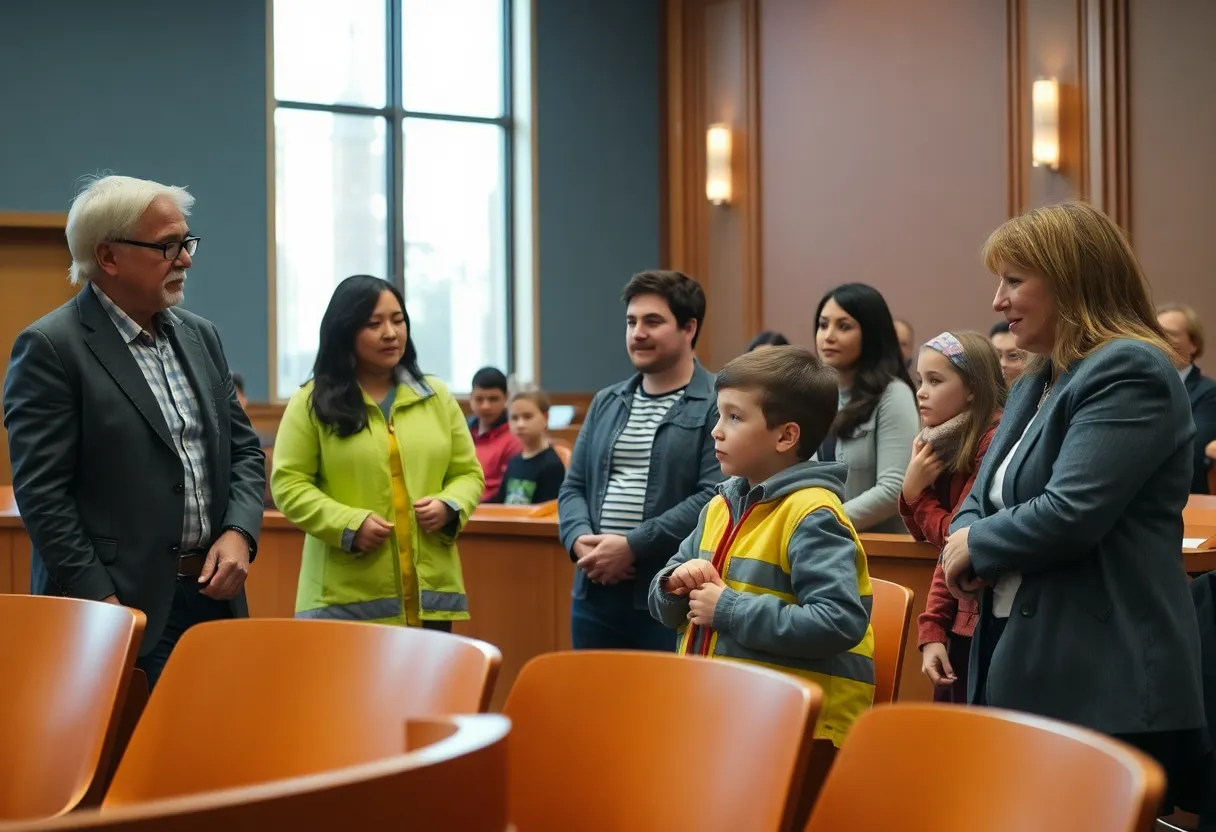News Summary
Public Outcry as Boise Delays Critical Hearing on Asbestos-Related Demolition
In a surprising turn of events, Boise’s Planning and Zoning Commission has postponed a public hearing originally set for January 6, 2025, regarding a controversial development that could involve the demolition of three houses suspected to contain asbestos. The new hearing is now scheduled for 6 p.m. on February 10, 2025, to be held at Boise City Hall. This delay has raised eyebrows, particularly among local parents concerned about the health risks posed to their children attending nearby schools.
The Development Plan Raises Alarm
The proposed development near Timberline High School and White Pine Elementary involves not only the demolition of three houses but also three outbuildings built before the ban on asbestos insulation. Asbestos has long been a dangerous material used for construction, offering resistance to heat and fire but posing grave health risks when disturbed. The hearing is not just about building regulations; it touches upon serious implications for public health.
Asbestos Exposure: A Silent Killer
Studies have indicated that past asbestos exposure led to nearly 40,000 deaths in the U.S. in 2016 alone. When asbestos fibers are disturbed, they can remain airborne for days, leading to severe lung damage and fatal cancers. This dire health issue becomes especially concerning when demolition sites are in proximity to schools, as children are particularly vulnerable to airborne contaminants.
Shocking Demolition Stats in Boise
In a related trend, over 120 demolition permit requests were submitted to the City of Boise in 2024. Many of those demolitions potentially involve homes constructed using hazardous materials. The current guidelines for demolishing single-family homes that may contain asbestos are alarmingly lax; they do not require air quality tests or neighbor notifications even when hazardous materials are suspected.
Regulatory Gaps and Health Risks
The lack of stringent measures is especially alarming given that the Environmental Protection Agency (EPA) regulations under the National Emission Standards for Hazardous Air Pollutants do not apply to residential demolitions that involve fewer than five homes. Meanwhile, the Idaho Department of Environmental Quality (DEQ) does not have jurisdiction over residential demolitions, focusing instead on industrial sites, leaving a regulatory void.
Locals are quite disturbed by this oversight. The demolition procedures involving asbestos often lack comprehensive safety measures; typically, only basic dust suppression through watering the site is mandated. Many contractors may compromise safety, with rumors of demolitions occurring without appropriate permits or testing.
Safety Procedures: A Dire Need for Improvement
Proper asbestos abatement entails strict regulations, including containment, maintaining negative air pressure, and providing protective gear for workers. Unfortunately, these measures are not uniformly enforced, leading to hazardous home demolitions that could compromise the health of nearby residents. The EPA has recommended water for dust control during such projects, yet this minimal approach raises questions about the sufficiency of protection for the community.
The Community Responds
With plans underway to develop a parcel at 396 E. Linden St. into 31 townhouses and a three-story building containing apartments and retail spaces, local residents have voiced their concerns about student exposure to harmful materials. The upcoming public hearing is likely to draw considerable attention from community members wary of the potential health risks associated with asbestos exposure.
The Call for Stricter Regulations
Experts agree that Idaho needs stronger regulations concerning asbestos management during renovations and demolitions to ensure community health is prioritized. The inconsistency in regulations places residents at unnecessary risk, particularly when developments are placed in close proximity to schools.
As the new public hearing date approaches, stakeholders from various sectors, including health, education, and community planning, are likely to engage in heated discussions around the essential topic of public safety. Will city officials reconsider current demolition policies? Only time will tell.
Deeper Dive: News & Info About This Topic
HERE Resources
FDA Proposes Crucial Testing Methods for Asbestos Detection in Talc-Containing Cosmetics
The Rialto Square Theatre: Joliet’s Jewel Reopens After Asbestos Scare
Asbestos Handling Raises Alarming Safety Concerns in San Diego
Local Business Owners Face Hefty Fines for Asbestos Violations
Cost of Demolition for Medina Courthouse Project Comes in Under Estimates
The UK’s Asbestos Crisis: A Silent Killer in Schools
Crystal River City Council Takes Important Steps for Asbestos Remediation
Historic Mesothelioma Case Leads to $3.45 Million Verdict
Southern California Residents on High Alert: Are Wildfires Hiding More Than Just Smoke?
Danger Looms: As Natural Disasters Rise, So Do Asbestos Exposure Risks



















